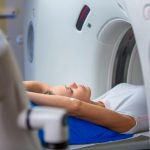 Making rapid sense of medical imaging is the predominant application of AI today, but it’s probably fair to say that most applications have been in understanding the images rather than generating them. A recent study aims to redress the balance a little.
Making rapid sense of medical imaging is the predominant application of AI today, but it’s probably fair to say that most applications have been in understanding the images rather than generating them. A recent study aims to redress the balance a little.
At the moment, good medical imaging requires high quality data, which often requires higher doses of radiation or uncomfortably long scan times. The research aims to expedite the process to allow high quality images to be generated without requiring the additional data normally needed.
The process, dubbed AUTOMAP, aims to speed up the process of reconstructing the medical images from the huge amounts of raw data sent by the scanner. Ordinarily, this would be done via signal processing models that require manual tuning and often struggle with the kind of imperfections commonly found in the raw data. This is where the AI comes in.
“With AUTOMAP, we’ve taught imaging systems to ‘see’ the way humans learn to see after birth, not through directly programming the brain but by promoting neural connections to adapt organically through repeated training on real-world examples,” the authors say. “This approach allows our imaging systems to automatically find the best computational strategies to produce clear, accurate images in a wide variety of imaging scenarios.”
Smarter imaging
The team believe their approach represents a huge leap forward for medical imaging. They stood on the shoulders of previous research into neural networks, and also the graphical processing units GPUs) that usually drive these operations. They were also able to tap into significant datasets to help them train the algorithms used within AUTOMAP.
The team believe that the system promises a number of benefits for healthcare providers, even above and beyond the fact that high-quality images can be produced in much less time than normal, with lower doses of X-ray, CT and PET. Above those benefits, the team believe that it will empower real-time decisions to be made whilst the patient is inside the scanner.
“Since AUTOMAP is implemented as a feedforward neural network, the speed of image reconstruction is almost instantaneous – just tens of milliseconds,” they say. “Some types of scans currently require time-consuming computational processing to reconstruct the images. In those cases, immediate feedback is not available during initial imaging, and a repeat study may be required to better identify a suspected abnormality. AUTOMAP would provide instant image reconstruction to inform the decision-making process during scanning and could prevent the need for additional visits.”
This could provide support for other AI technologies in healthcare, most of which to date revolve around computer-aided diagnostics. The team believe that AUTOMAP could play a crucial role in helping to improve these applications and make them more attractive for clinical use.
“Our AI approach is showing remarkable improvements in accuracy and noise reduction and thus can advance a wide range of applications,” they conclude. “We’re incredibly excited to have the opportunity to roll this out into the clinical space where AUTOMAP can work together with inexpensive GPU-accelerated computers to improve clinical imaging and outcomes.”